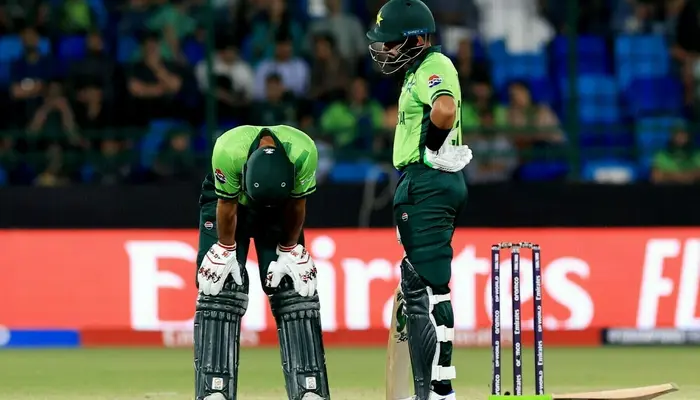Pakistan’s early exit from the Champions Trophy was a crushing blow, especially as hosts and defending champions. Losses to New Zealand and India sealed their fate, making their final match against Bangladesh irrelevant. The failure exposed deep flaws in team selection, preparation, and strategy.
Chaotic Preparation and Injuries
Pakistan’s lead-up to the tournament was promising. Under Mohammad Rizwan’s captaincy, they secured historic wins in Australia, Zimbabwe, and South Africa. However, setbacks soon followed.
Key opener Saim Ayub suffered an ankle injury during a Test in South Africa. Pakistan delayed announcing their squad, hoping he would recover, but he didn’t. Further trouble hit when Fakhar Zaman was ruled out after their opening loss to New Zealand.
Pakistan’s pace attack of Shaheen Afridi, Naseem Shah, and Haris Rauf, rested from the Test series, failed to find rhythm. They struggled in the death overs, conceding crucial runs that cost Pakistan the games.
Read: Pakistan’s ODI Struggles Exposed Again in Crushing Loss to India
Selection Blunders Cost the Team
Selectors ignored calls to include a second specialist spinner, relying instead on part-time options Salman Agha and Khushdil Shah, who took just one wicket in two matches.
A questionable decision saw an out-of-form Babar Azam promoted to open alongside Fakhar. When Fakhar was injured, Imam-ul-Haq was called in but failed to make an impact, scoring just 10 runs against India.
Adding to the confusion, selectors picked Khushdil Shah and Faheem Ashraf based on performances in Bangladesh’s T20 league, despite their long absence from ODIs. Ashraf had not played a 50-over match in two years, and Khushdil in three.
Former captain Rashid Latif slammed the selections, calling them politically influenced rather than based on merit.
Outdated Playing Style Exposed
Former star Shahid Afridi harshly criticized Pakistan’s old-fashioned approach. While other teams play aggressive, modern cricket, Pakistan stuck to a conservative style from the 1980s and 1990s.
A major issue was the excessive dot balls. Pakistan played 152 dot balls against India, including 28 in the first six overs. Against New Zealand, 162 dot balls limited their total to 260 runs in 47.2 overs.
Afridi insisted that Pakistan needs a complete system overhaul to develop players with an aggressive mindset.
The Road Ahead
Pakistan’s early exit from the Champions Trophy has raised serious concerns. To stay competitive in modern cricket, they must revamp selection strategies, adopt aggressive tactics, and develop a fearless mindset. Without these changes, Pakistan risks falling further behind the world’s best teams.
Follow us on Google News, Instagram, YouTube, Facebook,Whats App, and TikTok for latest updates
